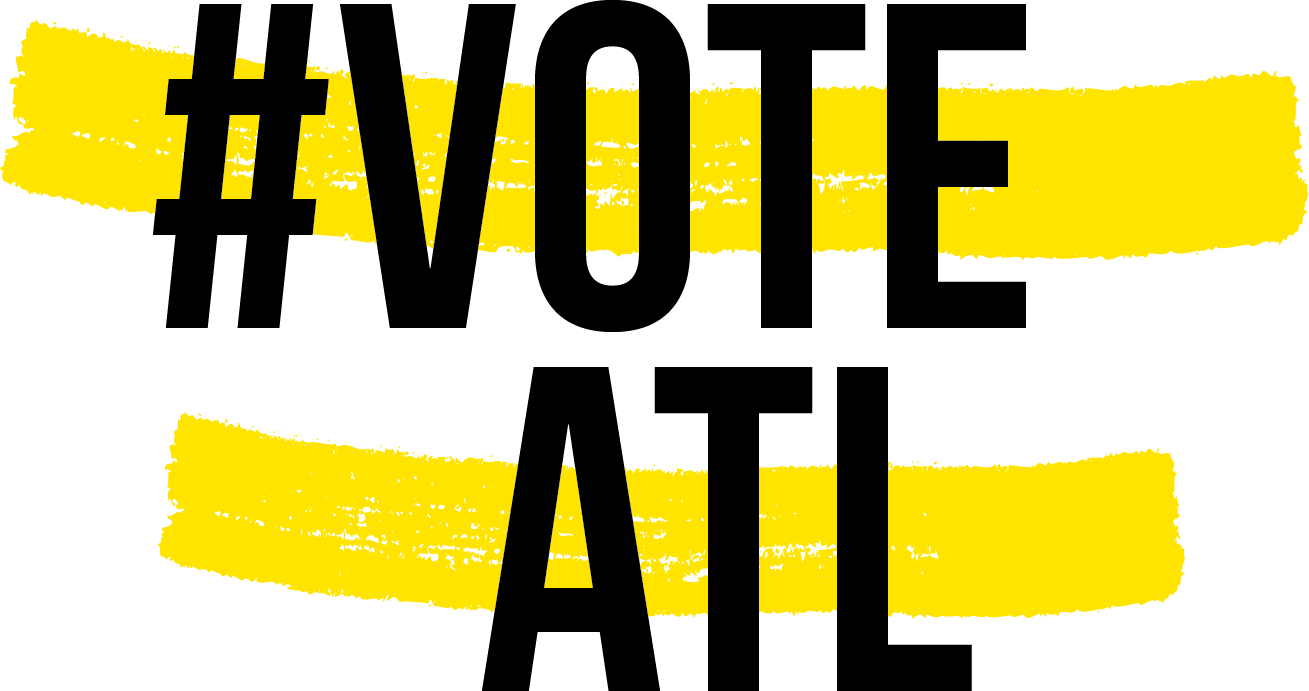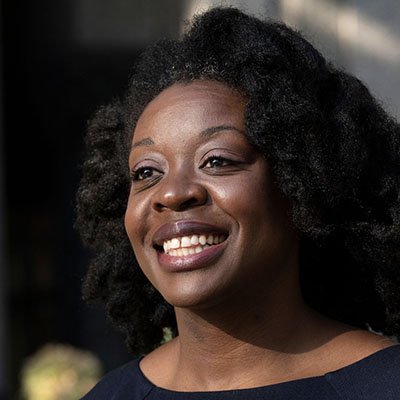Nkoyo Effiong Lewis
Atlanta Board of Education
Seat 9 At-Large
The Center for Civic Innovation sent a questionnaire to all candidates. Here are Nkoyo’s responses:
SETTING VISION AND STRATEGY
School Board members are responsible for setting a vision and strategic direction for our school system to affect positive change. It’s important for representatives to lead by example and inspire others.
-
The most important role for the school board is to provide dynamic leadership - actively engaging with and responding to stakeholders - to drive the shift in culture and outcomes that will benefit our students and community.
-
No
-
Yes. As an elementary school teacher and instructional coach, I have directly impacted student outcomes - my 4th graders consistently grew two academic years annually. Drawing from my success teaching in an Atlanta classroom, I later coached numerous teachers on using data to tailor instruction and boost student achievement across the city. This firsthand experience in schools fuels my commitment to ensuring all students access the excellent education they deserve.
-
My blend of professional experience uniquely prepares me to serve effectively on the school board. As the only candidate who has taught elementary literacy, I understand firsthand the reading challenges facing our students and can help craft policies to improve proficiency rates. Additionally, my background as an education attorney, representing both districts and students/families provides critical insight into ensuring our schools follow proper protocols and serve the interests of all students. With direct classroom teaching experience and legal expertise in education law, I am well-positioned to help advance policies that will enhance educational outcomes across Atlanta Public Schools.
-
As a mother of three, including a son who is neurodiverse, I understand firsthand the challenges parents face in advocating for their children's needs. Despite federal protections, I still had to fight for my son to receive appropriate support and graduate with dignity. This experience motivates me deeply to ensure all Atlanta parents can effectively communicate with schools so their children get the excellent education they deserve. With two more children soon entering APS, I feel a profound urgency to bring my blended background as an educator, education attorney, and involved parent to the school board, where I can create meaningful change for all families. My personal experience deepens my commitment to empathetically serving our community.
-
Songs: Wild Dreams by Burna Boy, Break My Soul by Beyoncé; Book: Creative Change Why We Resist It…How We Can Embrace It by Jennifer Mueller, PhD. These are giving me life right now. They energize me to hold onto hope, think boldly, and not let obstacles dim the wild dreams I have for progress and justice in our schools.
-
The Board has targeted areas that I agree are important. Nonetheless, we must be bolder in the goals we set if we truly want to create a brighter future for Atlanta's students. I believe in setting ambitious targets for student achievement and outcomes, even if we fall short at times. Students rise to meet high expectations - by challenging APS to reach new heights, we can empower our children, educators and community to come together and deliver the transformational results our kids deserve. We cannot be satisfied with mediocrity or the status quo if we aim to significantly improve outcomes and opportunities for the next generation. Our focus must remain on doing all it takes to set our students up for success.
HIRING THE SUPERINTENDENT
During this election process, the School Board is also actively searching for a new Superintendent. This next board will be making the decision on who will be hired.
-
APS needs a superintendent who understands the Atlanta context and is ready to lead us into the next version of ourselves. The rate of change is accelerating, and our students will confront a future that many of us cannot imagine. (1) The next superintendent needs to be prospective, focusing on improving timeless skills like literacy, math, and critical/creative thinking. (2) They will need to be innovative, strategic, and committed to working with the community in our shared governance model. Most importantly, (3) they will need to believe and embody the very things our strategic plan expects of its graduates to be: self-reflective, & globally connected, self-directed & goal oriented, resourceful & driven, and a critical thinker & a problem solver.
-
The Board must hold itself and the Superintendent accountable for tangible improvement in key areas like student achievement, teacher retention, community engagement, and equity. Specifically, we should set clear goals and regularly track outcomes such as proficiency rates, retention of high-quality teachers, participation in district/board meetings, opportunity gaps, and inclusion practices. With focused attention and measurable progress on these vital student and teacher-centered priorities, we can work to foster a more just, responsive, and effective school system for all.
Setting the budget
APS’s budget is a direct representation of the School Board’s priorities, and adopting it is one of the School Board’s primary responsibilities. It requires board members to make tough decisions, ask clarifying questions, understand the constraints, and ensure dollars are being allocated effectively and equitably.
-
Before we start talking about increasing spending, I want to thoroughly assess where our money is currently going and what impact those dollars are actually having inside schools and classrooms. There are far too many stories of resources locked up in warehouses and closets for us to focus solely on increasing spending. We need to ensure that our current spending is producing a return on investment and engage our school community in the areas where we need to spend more or less.
-
Impact. No financial decision should be made without: 1) clearly outlining the impact we expect those dollars to have 2) a specific way to measure the outcomes tied to those monies, and 3) channels to communicate those outcomes to and from stakeholders and the district.
Creating Public Policy
The School Board has a responsibility to review, create, shape, and shift policies. Moving public policy requires an understanding of what policies are today, how we got here, and where we’re trying to go. A School Board member must also consider the impact these policies have on key stakeholders (e.g. students, teachers, and parents).
-
Our current GO Teams policy is falling short of its immense potential. Many parents and community members are unaware of how to join or feel their voices go unheard, resulting in rubber-stamping principal decisions rather than true collaborative leadership. We need full transparency around GO Team opportunities and operations. Members should receive training to understand their role and approach discussions as equal partners, not just advisors. With proper support, GO Teams can become spaces for honest dialogue and creative problem-solving, where all feel empowered to share ideas without fear of retribution. By recalibrating expectations, providing transparency and training, and facilitating a culture of open communication, we can transform GO Teams into the vibrant, inclusive bodies of shared governance they were meant to be.
-
The Restorative Practices is a policy change that I believe is a step in the right direction for all children. Exclusionary discipline practices are the foundation of the school-to-prison pipeline, and we need to dismantle and replace it with pathways that lead to opportunity for our students. We still have quite a ways to go to ensure restorative practices are being implemented with fidelity across our district. This is especially urgent in light of the fact that most students who are subjected to long-term suspensions and all those who are expelled from APS are Black.
Building Community Relationships
The School Board cannot do this work alone. As a School Board member you must build and maintain relationships with a number of key stakeholders, from parents, to teachers, to other government agencies or private enterprises (non-profit or for-profit).
-
While corporate and philanthropic partners add value, our greatest partnership opportunity is with families and local community groups. We must apply equal energy to genuinely engaging these grassroots partners as we do courting influential supporters. By meeting families where they are and welcoming their vital voices, we can cultivate the strong, trusting relationships with parents and communities that will help our students thrive. Our families and communities must be seen as true partners in this work.
-
Meaningful engagement must be a two-way street. As a board member, I endeavor to connect with the community and school staff in the community, not just at central office. I will advocate for us to design and implement processes facilitating seamless communication between the district and community, schools and families, and across school clusters. Engagement cannot end when the meeting does - we need accountability and follow-through to keep stakeholders connected. As a Board member, I will work to ensure our system consistently bridges communication gaps between all parties so we can work collectively to serve students. Change happens at the speed of trust, and meaningful engagement is one of the most effective ways to build trust.
Operating with Transparency and Equity
School Board members must commit to openness and transparency. This matters to keep people informed about decisions and spending made on their behalf.
-
The Board must radically improve transparency so we can rebuild trust. Critical information is often unavailable without formal requests, while major decisions happen with minimal explanation or community input. To the greatest extent possible, information should be publicly accessible. The community deserves to know how its elected leaders vote on issues impacting families. Recognizing educational and experiential diversity in Atlanta, information should be presented visually and through various media formats to maximize reach and comprehension. As a Board Member, I will push for deeper transparency and innovative, multi-modal information sharing so the community can engage meaningfully.
-
Equity is the assumed and shared responsibility for righting imbalances- that may or may not be our fault- so that access to opportunities and success are shared by all.
-
Equity is a habit. Acknowledging inequities was a start, but equity must become a living practice - not just policy. As a Board member, equity would be central to my every decision and action. Equity requires developing habits that break down barriers for stakeholders. This means ensuring accessible communications for all languages and abilities, considering impacts on marginalized groups, and consistently asking: who does this include or exclude? Equity can't be a one-time initiative - we must breathe equity into everything we do so it becomes the heart of our culture and outcomes.
Other resources:

